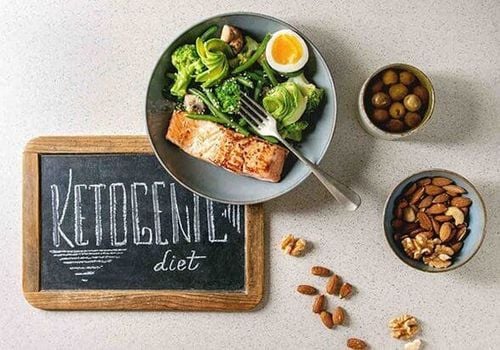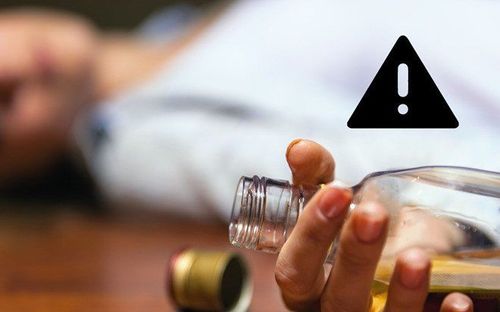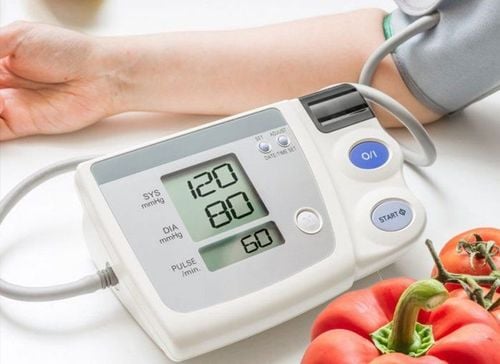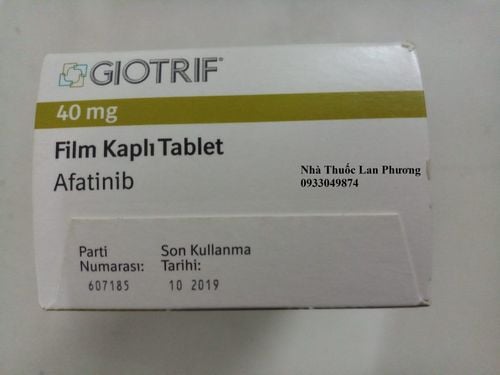This is an automatically translated article.
The article was written by MSc Mai Vien Phuong - Head of Gastrointestinal Endoscopy Unit, Department of Medical Examination & Internal Medicine - Vinmec Central Park International General HospitalNutrition is an important part of lung cancer treatment. Cancer itself and its treatment side effects can reduce your appetite, making it difficult to get the calories and nutrients you need right now.
1. Dietary overview in lung cancer
There is no evidence that any particular diet can treat lung cancer. However, eating healthy can help boost your overall health, help improve energy levels, and give you more strength during treatment.
It can be difficult to eat a balanced diet right now. Lung cancer and its treatments can reduce your appetite. In particular, chemotherapy can change the taste of food and make your mouth too sore to eat anything.
Work with your doctor and dietitian to find a healthy eating plan that's right for you. They will help you choose foods to maintain your weight and optimize your health during lung cancer treatment.
2. The best diet for lung cancer
There is no one "best diet" for people with lung cancer. Your ideal diet depends on:
Your lung cancer treatment plan and any side effects you experience Weight preferences Other conditions, such as diabetes or heart disease Goals of any lung cancer diet are:
Give you enough calories to prevent weight loss Give you the essential nutrients your body needs, including vitamins, minerals, protein, healthy fats and carbohydrates Helps reduce treatment side effects such as diarrhea, nausea or constipation Talk to your doctor and a dietitian who specializes in cancer. They can tailor the diet to your needs and eating preferences.
3. Keto Diet

The ketogenic diet, or keto, is a very low carb, high fat diet. Some research suggests that the keto diet may be effective for treating advanced cancers, including lung cancer.
However, studies have shown that the keto diet is difficult to follow for people with lung cancer, especially while undergoing treatment such as chemotherapy and radiation. It can lead to a reduction in calorie consumption. Research in this area is underway. It is important to consult your doctor before making any dietary changes. Your medical team will work with you to decide on the best diet for you based on your overall health and outlook.
In a study published in the European Journal of Clinical Nutrition, people who ate a lot of whole grains and fruit had a lower risk of lung cancer than people whose diets were low in healthy foods. this.
Replacing red meat and other saturated fat-rich foods with unsaturated fat sources such as olive oil, nuts and avocados may also help reduce the risk of lung cancer, especially in people smoke.
Fruits and vegetables are an important addition to a cancer-fighting diet, especially in smokers. Nutrients like beta carotene and vitamin A found in foods like sweet potatoes, carrots, and cantaloupe may help reduce the risk of lung cancer.
Studies also show that having high levels of vitamin D in the blood can also protect against lung cancer. Your body makes vitamin D from sunlight. Vitamin D is also added to some fortified foods. However, vitamin D supplementation is necessary if you have low vitamin D levels.
Talk to your healthcare provider about getting a vitamin blood test to assess your levels.
4. Diet and side effects
Chemotherapy drugs are powerful drugs that work to kill cancer cells throughout your body. Because these drugs are so strong, they can cause side effects such as:
For nausea and vomiting:
Eat bland foods such as toast, crackers, and rice. Eat smaller, more frequent meals instead of large meals. Eating cold or room-temperature foods can be helpful when you're feeling sick. For diarrhea:
Eat foods that contain salt, such as biscuits or broth, to replenish the sodium lost due to diarrhea. Drink at least 1 cup of water or sports drink after each loose bowel movement. Eat bland foods like rice, bananas and toast until the diarrhea goes away. Avoid dairy, high-fat foods, greasy foods and sweets, which can make diarrhea worse. Limit high-fiber foods like whole grains and fresh fruits and vegetables, unless your doctor tells you otherwise. For constipation:
To make it easier, eat high-fiber foods like cereals and whole-grain breads, fresh vegetables, fresh fruit with seeds and peels, fruit juices and dried fruit like prunes and apricots. Drink more fluids, including filtered water and pasteurized juice. Warm beverages like tea or coffee can help relieve constipation. Limit foods that can make constipation worse, such as cheese and eggs. For anorexia:
Regularly eat several small meals and snacks throughout the day instead of three large meals. Increase the amount of high-calorie, high-protein foods in your diet, like peanut butter, chicken, hard-boiled eggs, hummus, and nuts. Take a nutritional supplement like a protein shake. To change the taste and smell:
If you can't stand the smell of cooking, serve food cold or at room temperature. Mix 1 teaspoon of salt and 1 teaspoon of baking soda in 4 cups of water and gargle before eating to help food taste better. Use plastic forks, spoons, and knives instead of metal utensils. Freeze fruit before eating. Try new spices and sauces until you find one that appeals to you. For mouth sores:
Ask your doctor if you can take medicine before meals to relieve mouth pain. Eat soft foods like oatmeal and apple sauce. Try frozen foods like ice cubes, frozen yogurt, or shaved ice. Avoid spicy or salty foods. Do not eat anything acidic, such as oranges, lemons, or tomatoes. If you lose your appetite and lose weight, talk to your doctor. A dietitian can help you fill in the gaps in your diet.
Please dial HOTLINE for more information or register for an appointment HERE. Download MyVinmec app to make appointments faster and to manage your bookings easily.
References:Wang M, et al. (2015). The effect of fruit and vegetable intake on the development of lung cancer: A meta-analysis of 32 publications and 20,414 cases. nature.com/articles/ejcn201564 Weber DD, et al. (2018). Ketogenic diet in cancer therapy. ncbi.nlm.nih.gov/pmc/articles/PMC5842847/ Yu N, et al. (2015). Association of dietary vitamin A and beta-carotene with the risk of lung cancer: A meta-analysis of 19 publications. mdpi.com/2072-6643/7/11/5463/htm Zahra A, et al. (2017). Consuming a ketogenic diet while receiving radiation and chemotherapy for locally advanced lung and pancreatic cancer: The University of Iowa experience of two phase I clinical trials. ncbi.nlm.nih.gov/pmc/articles/PMC5510645/ Zhang L, et al. (2015). Vitamin D and lung cancer risk: A comprehensive review and meta-analysis. karger.com/Article/FullText/374072














